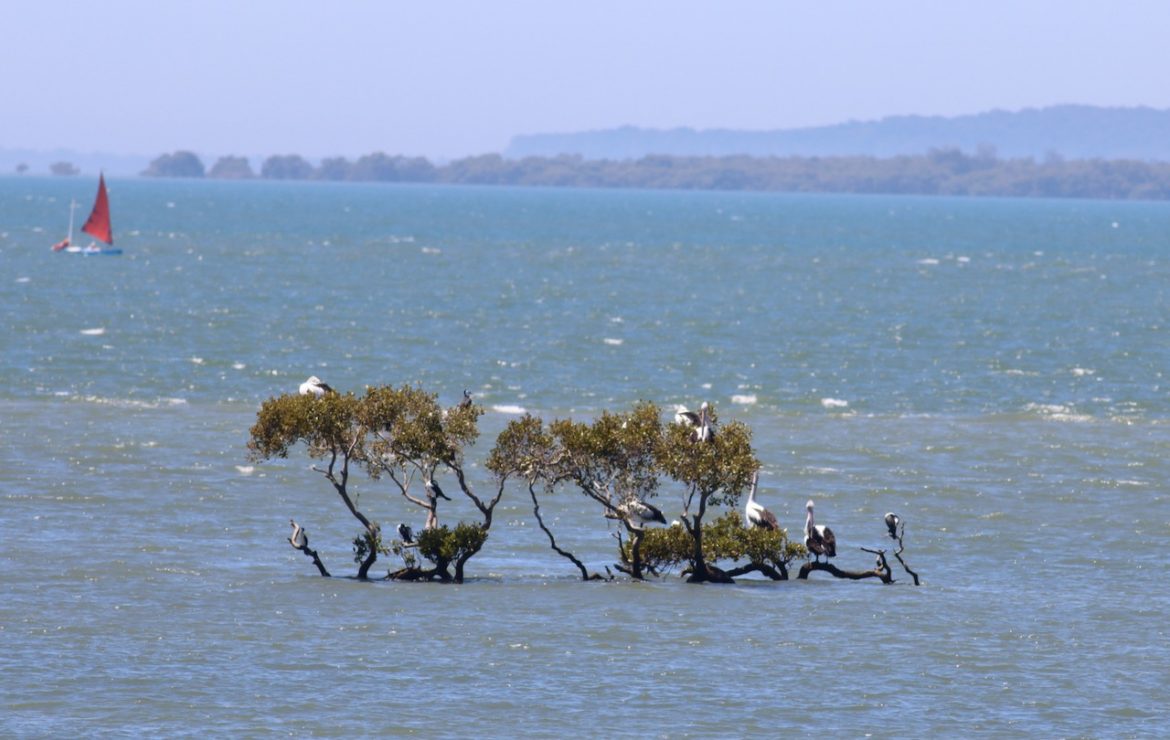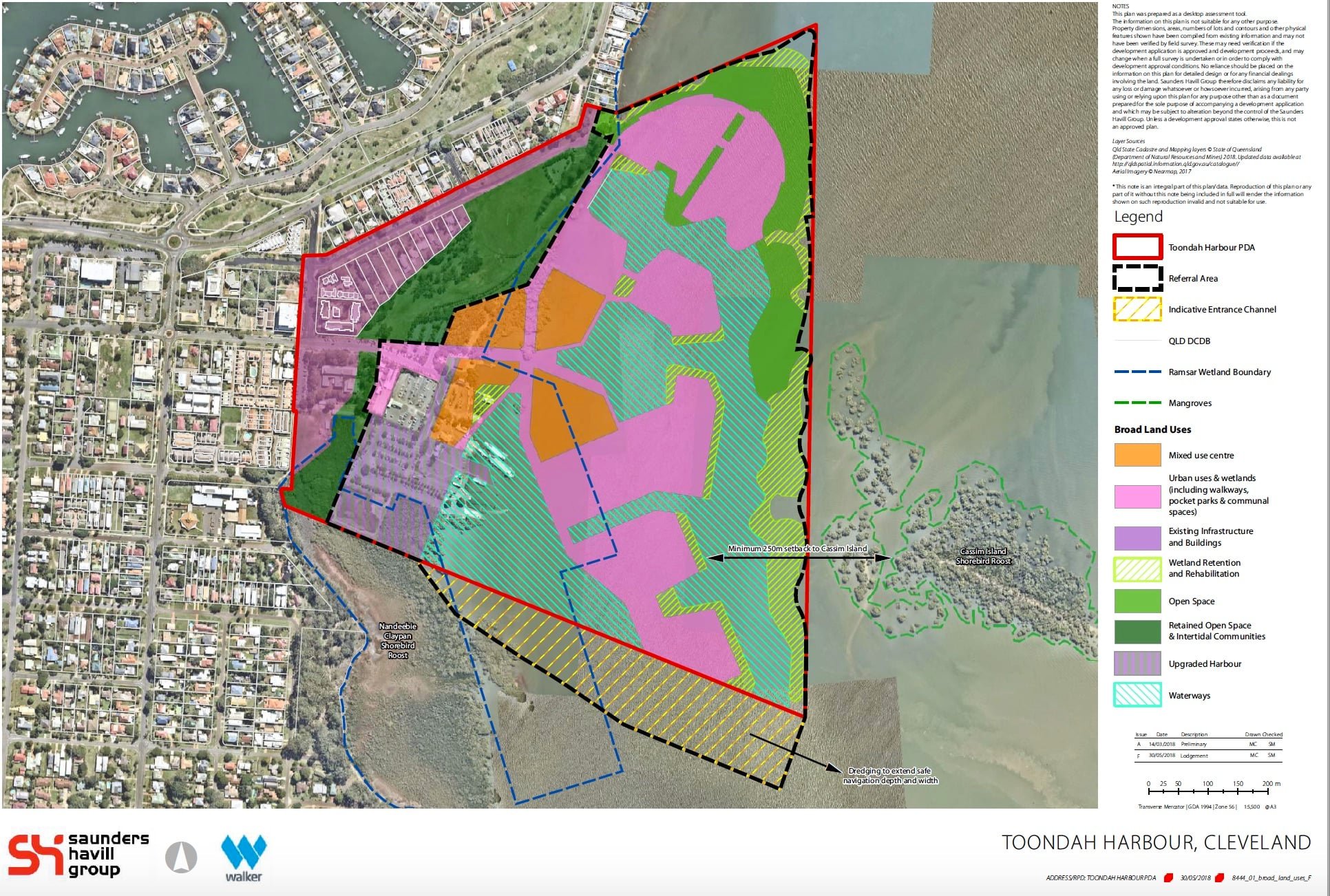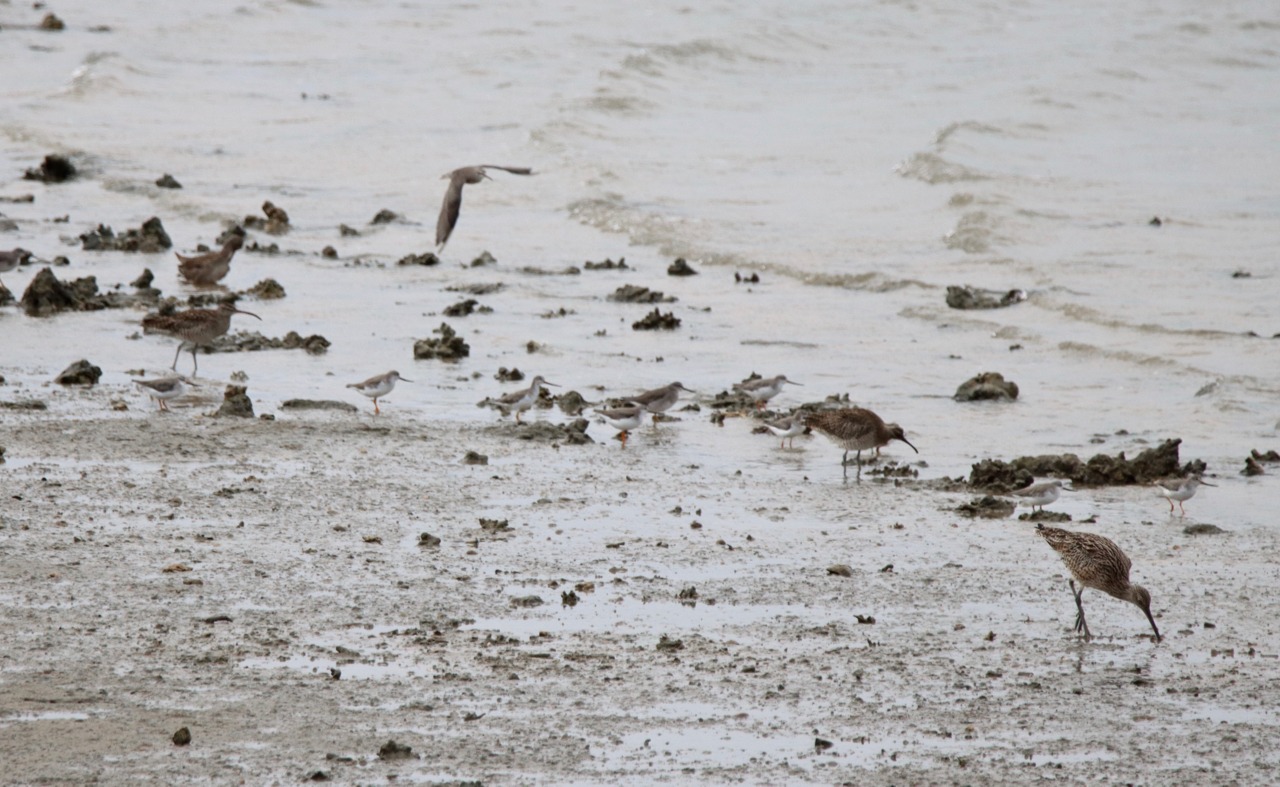
Ministers’ letters expose fatal Toondah flaw
A letter from former Federal Environment Minister, Josh Frydenberg, to then Queensland Environment Minister Steven Miles, in effect identifies the fatal flaw in Cleveland’s Toondah Harbour real estate scheme. Frydenberg, a former lawyer, understood the significance of Australia’s obligations under the Ramsar Convention and an Australian legislative requirement on him not to act inconsistently with those obligations.
Frydenberg’s letter, released under Freedom of Information laws, was sent to Miles shortly after Frydenberg controversially decided to ignore Departmental scientific and legal advice and personally declare a second referral of the Toondah scheme a ‘controlled action’. This meant that further assessment would occur, instead of immediate rejection. A first referral by Walker Group/Corporation (Walker) in 2015 was withdrawn in 2017.
In 2018, a third referral (the current one) was made by Walker. Walker’s Environmental Impact Statement (EIS) relates to this referral. Essentially it is the same scheme in terms of proposed destruction of Ramsar wetlands and restriction of Ramsar site boundaries. It also was declared a ‘controlled action’ under Frydenberg.
Josh Frydenberg’s letter to Steven Miles
These are key extracts from Frydenberg’s 4 August, 2017 letter to Miles, with my underlining:
“I am writing further to my recent letter notifying you of my controlled action decision for the proposed Toondah Harbour development (EPBC 2017/7939)..
In that letter, I mentioned that there are significant challenges relating to the approval of this project. These relate to the proposal being located substantially within the Moreton Bay Ramsar wetland boundary and my obligations, under s.138 of the Environment Protection and Biodiversity Conservation Act 1999, not to act inconsistently with Australia’s obligations under the Ramsar Convention.
One option that may arise is for a case to be developed to amend the boundary of the Ramsar wetland. To meet Australia’s obligations under the Ramsar Convention, any such proposal is required to demonstrate that the change is in the ‘urgent national interest’..”


Steven Miles, in his reply, indicated the Queensland Government “acknowledges that any such amendment needs to be in the “urgent national interest”.
Fatal flaw exposed
Frydenberg’s letter and Miles’ reply primarily were about Australia’s obligation in Article 2.5 of the Ramsar Convention not to “delete or restrict” a Ramsar site boundary unless for “urgent national interests”.
The context of this obligation includes the Convention’s general obligations of ‘conservation’, ‘wise use’ and maintaining the ‘ecological character’ of wetlands.
Importantly, a primary purpose of the Ramsar Convention is “to stem the progressive encroachment on and loss of wetlands now and in the future”.
Article 2.5 reinforces, in a very specific way, the general obligations and this is why it is so important. There is no wriggle room.
At the domestic level, as Frydenberg’s letter states, Section 138 of the EPBC Act requires, in a straightforward way, that in deciding whether or not to approve a proposal impacting a Ramsar wetland:-
“.. the Minister must not act inconsistently with Australia’s obligations under the Ramsar Convention.”
Article 2.5 and section 138 together create the fatal flaw in the Toondah scheme.
It is of course an absurd proposition to suggest that a private profit real estate scheme on top of publicly owned, internationally recognised and protected wetlands could be in our urgent national interests. It appears an attempt was made to convince Frydenberg that it was at a meeting between Walker and Frydenberg in Melbourne in August, 2016. The meeting occurred two months after Walker donated $200,000 to the Federal Liberal Party in the lead up to the 2016 Federal Election.
But Frydenberg wasn’t convinced at the meeting, nor by a letter from the Queensland Government, sent to his Department, shortly after the meeting with Walker – the letter was exposed by the Guardian in 2019.
The Ramsar Secretariat also informed Walker that ‘urgent national interests’ had never been invoked by any signatory nation to delete or restrict a Ramsar site boundary. Conference of Parties resolutions confirm that signatories consider it to be a very high bar.
Walker and the Queensland Government also tried another angle – that there was a mistake in the drawing of the Ramsar boundaries at Toondah and/or these wetlands had completely lost their environmental attributes. The two claimed Australian precedents for developments in Ramsar wetlands referred to by Walker in its EIS fit into these categories, but neither applies at Toondah, as confirmed by the Queensland Government.
No justification to amend Ramsar boundary
In February, 2019, the then Queensland Environment Minister, Leanne Enoch, was asked a question on notice in parliament by Michael Berkman MP about the Guardian report. In her written answer, after confirming the Queensland Government letter exposed by the Guardian, the Minister backed away from the letter’s claims and said:
“However, a subsequent comprehensive mapping review, which included consultation with other Queensland Government departments and local governments, concluded that there was no justification to amend the Ramsar boundary.”
That State Government position was confirmed by the current Environment Minister, Meaghan Scanlon at a Parliamentary Committee hearing in December, 2020.
As expected, in its Draft EIS, Walker makes no attempt to bring its scheme within Article 2.5. Walker’s strategy seems clear. It wants the Albanese Government simply to ignore Australia’s Ramsar Convention obligations.
Frydenberg kicked can down the road
Josh Frydenberg didn’t approve the Toondah scheme. But his controlled action decision flew in the face of advice from his Department’s scientific experts that the scheme was “clearly unacceptable”.
That advice was backed up by legal advice, from senior Government lawyers. The legal advice was leaked to the ABC (see the Background Briefing interview with ANU Professor of Law Andrew Macintosh). Frydenberg was advised that if he approved the scheme he would be acting inconsistently with Australia’s obligations under the Ramsar Convention, in breach of his duty under section 138 of the EPBC Act.
Frydenberg’s letter to Miles, which also reflects the legal advice to him, exposes the political nature of the ‘controlled action’ decisions. Instead of doing the right thing and rejecting the scheme, Frydenberg kicked the can down the road. The can has landed at the feet of Tanya Plibersek.
Now it’s up to Plibersek to do the right thing
In the circumstances, if Plibersek were to approve the Toondah scheme, apart from other consequences, she would trash her reputation and that of the Albanese Government – and create a dangerous precedent for Ramsar sites.
There are so many valid reasons to oppose the proposed building of what would amount to a densely populated small town in protected wetlands of Moreton Bay. It makes no sense whatsoever. Not only would it breach Article 2.5, it also clearly seems to breach the Ramsar Convention’s general obligations.
The final date for comments and submissions on Walker’s EIS is 6 December. Under the EPBC Act, they are required to be sent to Walker (which is required to send copies to the Minister with its final EIS), but there is nothing to stop the public from sending copies of submissions directly to Minister Plibersek to ensure she receives them.
Tell Tanya you know about the fatal flaw
In conclusion, if you want to let the Minister know you are aware of the fatal flaw in the scheme described in this article, please include reference to it in your comments and submissions on the Draft EIS, along with your other comments and objections. Feel free to include a copy of this article or a link to it.
Article’s author:
Richard Carew (Environmental Consultant, retired lawyer)
Secretary,
Stradbroke (Terrangeri) Environmental and Cultural Protection Association Inc.



